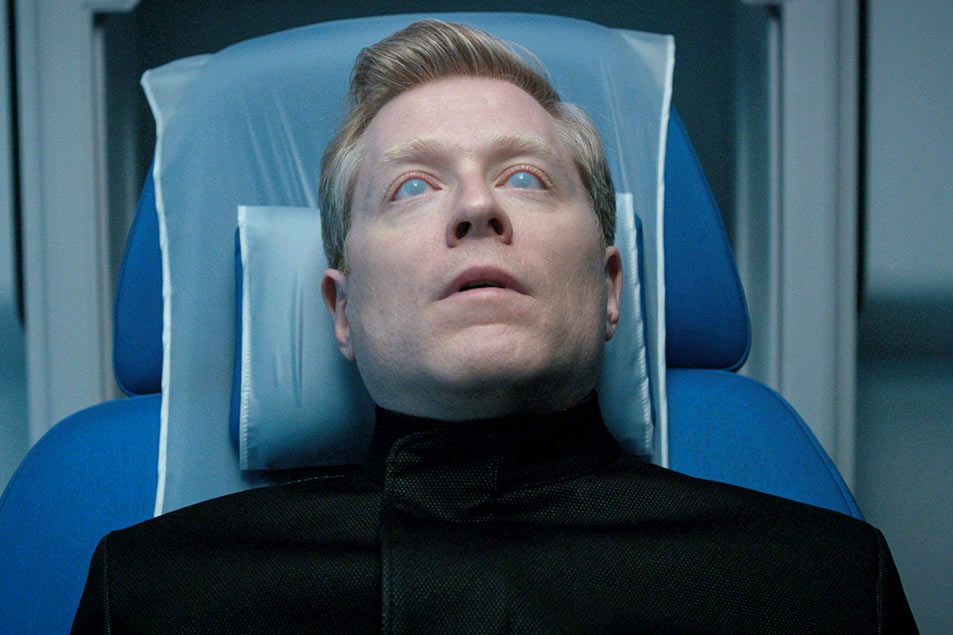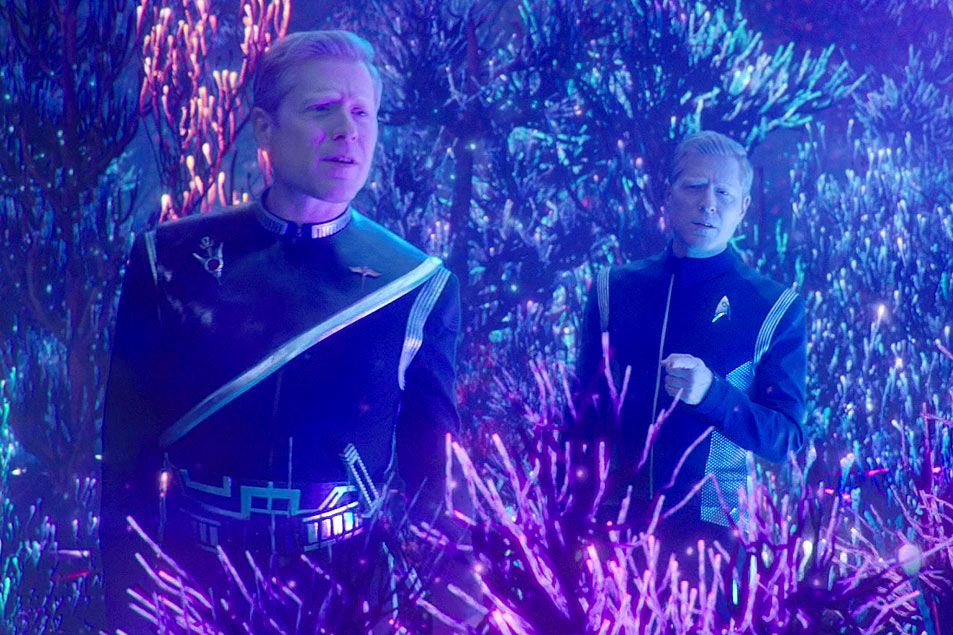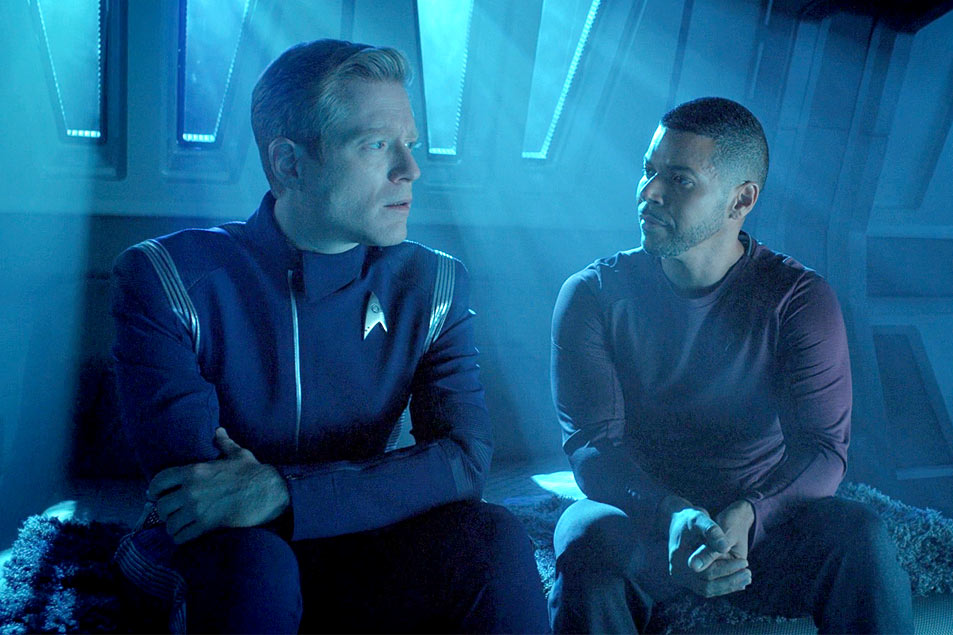One of the breakout characters from Star Trek: Discovery Season 1 was astromycologist Paul Stamets, played by Anthony Rapp, who not only developed a never-before-known form of space travel, but also got stuck in a spore drive coma, met his duplicate from an alternate universe, and lost the love of his life during the show’s first year.
We caught up with Rapp at the annual Star Trek convention in Las Vegas earlier this month, to reflect upon some of the acting challenges he faced in Discovery’s first season, and to look ahead to where Stamets’ journey will take him in Season 2.

TREKCORE: In Mirror Universe portion of Season 1, for a lot of the story, you had to pretend to be comatose in sickbay. Was that a challenge, as an acting role?
ANTHONY RAPP: It actually was really interesting. For a lot of that, I was wearing those milky-white contact lenses, so I couldn’t see through them. I could see light and shadow, but no depth. Nothing. So I would be lying on the bed with my eyes open… my sense of hearing increased, like my sense of smell… you’ve probably heard this, if you deprive yourself of one of the senses everything else kind of wakes up.
That’s what it was like. It became kind of like a dream state, so it was a really interesting exercise and kind of a fascinating experience.
TREKCORE: For the parts where you were awake, you were acting against yourself in a lot of scenes. Had you had any experience with that sort of doubling, or all the video effects and greenscreen work that went into that?
RAPP: No, I hadn’t ever really done anything where I was talking to myself before. When I was a kid in high school, I would do these, we called it ‘speech team,’ where I’d be myself, playing several different characters. So I’d do a scene from a play, but I’d play the five characters from the scene and I’d sort of talk to myself here, talk to myself there. It’s a little different from that, but I had some feeling about that part of it, of like, being responsible for both sides of a conversation.
But when it came down to shooting it, it was a big puzzle. I’d rehearse both sides, so we could get the timing of it and the spacing, the blocking of it, and there was an actor, who was my double, who had a recording of me in his ear so he could match the rhythms. It became a way of reverse-engineering it so that we could then ultimately do it piece by piece. It worked out and was really exciting in the end, but it was certainly a very strange an unusual way to go about it, but it was very, very satisfying.

TREKCORE: And when you were playing the ‘mirror’ version of Stamets, how did you approach differentiating the character from what we’d call the ‘good’ Stamets, or the ‘normal’ Stamets?
RAPP: For me, the ‘mirror’ self, really, is about…. you have the same soul, but your circumstances and the world you’re living in shape you. What the Mirror Stamets’ goals were, were shaped by the world he’s living in so there’s a sort of single-mindedness of it. A kind of manipulative nature that I don’t think the ‘prime’ Stamets ever has to enact.
But the soul of the person, and the intellect of the person, is the same. So it’s subtle, and it’s just… I feel like the Mirror Universe is maybe a little more sharper; a sharper edge, a little more laser-beam focused, kind of thing.
TREKCORE: Were you surprised by the quickness of fans, and the intensity of fans, to embrace Stamets and Culber as a relationship, and as characters?
RAPP: I was surprised. Well, the nature of the scene that we did, you know, the sort of “big reveal” of us brushing our teeth in the bathroom was a really sweet and subtle scene. It landed so powerfully for people, and that was surprising and incredibly gratifying. You know, we hoped it would be that way, but you never know for sure.

TREKCORE: What can you tell us about where we’ll see Stamets going in Season 2? Obviously there was a big loss at the end of Season 1 — not only with Culber’s death, but the spore drive’s been shelved as well.
RAPP: Well, there’s time given to deal with all of that, which I’m really grateful for, because there wasn’t time to deal with it in Season 1. There was so much else happening. The most I got to kind of deal with it, really, was holding the medal, you know?
So now we’re sort of staring in to the abyss, a little bit, of what’s next after all this and so there’s a real exploration of that and I think it’s really interesting. Certainly interesting to play as an actor, and I hope that it’s interesting to the audience.
![]()
Keep checking back to TrekCore as our Star Trek: Discovery coverage continues!
